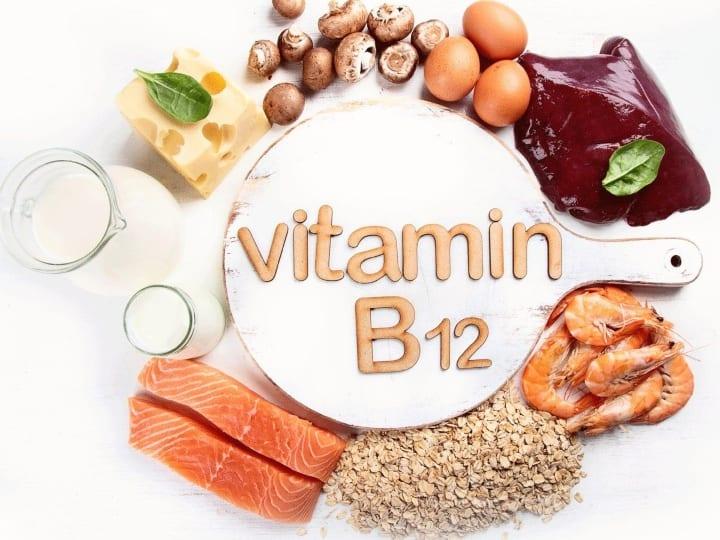Vitamin B12 is an essential nutrient responsible for maintaining the health of your body’s blood and nerve cells, as well as facilitating DNA synthesis, which is the genetic material found in all cells. Moreover, Vitamin B12 plays a crucial role in preventing megaloblastic anemia, a blood disorder that can result in fatigue and weakness.
Some key functions of vitamin B12:
Red blood cell formation:
Vitamin B12 is necessary for the production of red blood cells, which carry oxygen throughout the body.
Nerve function:
Vitamin B12 is essential for the proper functioning of the nervous system. It helps in the formation of myelin, a fatty substance that covers and protects nerve fibers.
DNA synthesis:
Vitamin B12 is required for the synthesis of DNA, the genetic material in our cells.
Energy metabolism:
It helps convert food into energy and is important for maintaining healthy metabolism.
Mood regulation:
Vitamin B12 is involved in the production of neurotransmitters such as serotonin and dopamine, which regulate mood and can help prevent depression.
Brain function:
Vitamin B12 supports cognitive function, memory, and concentration.
Heart health:
Vitamin B12 helps lower homocysteine levels in the blood, which is associated with an increased risk of heart disease.
Bone health:
Vitamin B12 helps maintain bone density and can help prevent osteoporosis in older adults.
It’s important to note that vitamin B12 has many other functions within the body, and deficiency can cause a range of symptoms and health problems.
Here are some common food sources of vitamin B12:
Meat:
Beef, lamb, pork, and poultry, such as chicken and turkey, are good sources of vitamin B12. Organ meats, such as liver and kidney, are particularly rich in B12.
Seafood:
Fish and shellfish are excellent sources of vitamin B12. Some examples include salmon, trout, tuna, mackerel, clams, and oysters.
Dairy products:
Milk, cheese, yogurt, and other dairy products contain vitamin B12. Opt for low-fat or fortified varieties when possible.
Eggs:
Whole eggs, including the yolk, contain vitamin B12. However, the vitamin is more concentrated in the yolk.
Fortified foods:
Some breakfast cereals, plant-based milk alternatives (soy milk, almond milk, etc.), and nutritional yeast are fortified with vitamin B12. Check the labels to ensure they contain adequate amounts.
Poultry:
Chicken and turkey also contain vitamin B12, but in smaller amounts compared to red meat.
Fortified nutritional supplements:
Vitamin B12 supplements are available in various forms, including tablets, capsules, and sublingual (under the tongue) sprays. Consult with a healthcare professional for appropriate supplementation.
It’s important to note that plant-based foods do not naturally contain vitamin B12. Vegetarians and vegans should ensure they obtain vitamin B12 from fortified plant-based foods or consider supplementation to meet their needs.
Here are some key points about vitamin B12 deficiency:
Pernicious anemia:
\Vitamin B12 deficiency is a common cause of pernicious anemia, a type of anemia characterized by the body’s inability to absorb vitamin B12. This leads to a decrease in red blood cell production and can result in symptoms such as fatigue, weakness, pale skin, and shortness of breath.
Neurological symptoms:
Vitamin B12 plays a crucial role in maintaining the health of the nervous system. Deficiency can lead to neurological symptoms such as numbness or tingling in the hands and feet, difficulty with balance, memory problems, confusion, and depression.
Digestive disorders:
Certain digestive disorders, such as celiac disease, Crohn’s disease, and conditions affecting the stomach or small intestine, can interfere with the absorption of vitamin B12, leading to deficiency.
Vegetarian or vegan diets:
Vitamin B12 is primarily found in animal-based foods, and individuals following strict vegetarian or vegan diets may be at a higher risk of deficiency if they do not consume adequate amounts of fortified foods or supplements.
Aging:
As individuals age, their ability to absorb vitamin B12 from food decreases. This can put older adults at a higher risk of deficiency.
Medications and medical conditions:
Certain medications, such as proton pump inhibitors (PPIs) and metformin, can interfere with vitamin B12 absorption or increase the need for the vitamin. Additionally, conditions like gastric bypass surgery and gastrointestinal disorders can affect B12 absorption.
Symptoms:
Vitamin B12 deficiency can cause a range of symptoms, including weakness, fatigue, lightheadedness, pale skin, shortness of breath, sore tongue, mouth ulcers, digestive issues, and neurological symptoms mentioned earlier.

